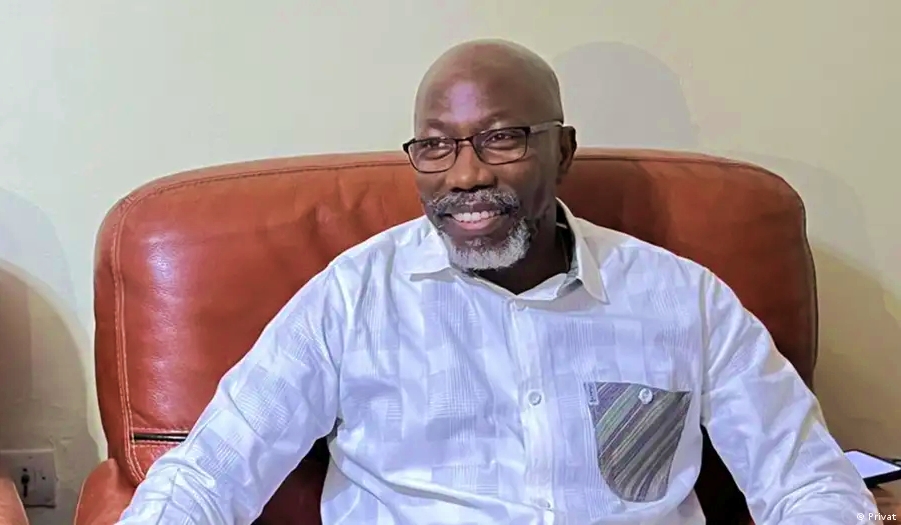Gambiaj.com – (BANJUL, The Gambia) – A recent BBC investigation has exposed how West Africa is becoming a dumping ground for dangerous and unauthorized pharmaceuticals, sparking fresh calls for urgent regulatory reforms. Dr. Ismaila Badjie, a Gambian pharmaceutical entrepreneur, has strongly condemned the unchecked influx of unsafe medications into the region, warning that such lax oversight is fueling a worsening public health crisis.
The report highlights Aveo Pharmaceuticals, an Indian company, as a key player in this troubling trend. The company’s director was secretly recorded admitting to knowingly exporting unlicensed and highly addictive opioids to West African countries, brushing off concerns with a chilling remark: “Nowadays, this is business.”
In a piece he entitles “The Pharmaceutical Crisis in West Africa: A Tale of Two Poisons,” Dr. Badjie emphasized that these revelations confirm long-standing fears held by pharmaceutical safety advocates in The Gambia. “The rise in distribution of Tafrodol, a dangerous combination of tapentadol and carisoprodol, directly correlates with the surge in ‘Kush’ addiction plaguing our nation,” he said.
Tafrodol, which is neither approved by the U.S. Food and Drug Administration (FDA) nor the UK’s Medicines and Healthcare Products Regulatory Agency (MHRA), is reportedly making its way into Gambian communities due to weak border controls and insufficient surveillance capacity.
A Crisis Exacerbated by Regulatory Failures
The BBC’s findings have reinforced Dr. Badjie’s persistent criticisms of the pharmaceutical regulatory framework in The Gambia and the wider West African region. According to him, the fundamental issue lies in a system that prioritizes market access over product quality.
“What’s particularly concerning is that our current regulations were designed to control market entry rather than ensure safety. Ironically, FDA-approved products readily available in the U.S. or UK often face barriers in The Gambia, while unapproved, dangerous drugs flood our streets with ease,” he explained.
Dr. Badjie also pointed out how pharmaceutical manufacturers exploit loopholes in African markets by providing seemingly valid documentation while distributing unauthorized products. “This over-reliance on paper-based systems and certificates of analysis is exactly why bad actors can operate so freely in our region,” he added.
India’s Role: A Nuanced Perspective
While acknowledging India’s dominance in global pharmaceutical production, Dr. Badjie stressed the need to differentiate between top-tier manufacturers that adhere to strict quality standards and bottom-tier players that target regions with weaker regulatory oversight.
“In the realm of pharmaceutical procurement for our Gambian people, I apply one simple, non-negotiable litmus test: If your product cannot be sold to them, I won’t accept it for us,” he declared. “India produces some of the world’s best medications, but bad actors exploit weaker regulatory environments in Africa to push unsafe products.”
His position, shaped by years of research and a personal connection to India’s pharmaceutical landscape during his father’s tenure as Gambian Ambassador to India, underscores the need for vigilance when sourcing medications for African markets.
A Call for Immediate Action
Dr. Badjie has outlined several urgent measures to combat the crisis:
Electronic Tracking Systems – The Gambia must accelerate the adoption of digital tracking mechanisms to monitor pharmaceutical imports and distribution in real time. “Unauthorized products circulate undetected because we still rely on outdated, paper-based systems,” he noted.
Regional Cooperation – West African countries should collaborate on a pharmaceutical surveillance network to share intelligence on dangerous imports and distributors.
Stricter Approval Processes – The Gambia must automatically reject pharmaceutical products that are not approved by stringent regulatory bodies such as the FDA, MHRA, or the European Medicines Agency (EMA).
“The correlation between unauthorized pharmaceutical imports and rising substance abuse isn’t coincidental,” Dr. Badjie warned. “The targeting of West Africa by these manufacturers represents an ongoing threat to public health that requires immediate, coordinated action.”
The Bigger Picture: Africa’s Growing Market Vulnerability
Beyond the issue of addictive substances, Dr. Badjie highlighted how West Africa’s youthful population and high unemployment make it a prime target for substandard pharmaceutical products.
“Our region is being flooded not just with opioids but with all manner of questionable medications—from basic painkillers to chronic disease treatments,” he stated. “With 60% of our population under 25 years old, the demand for healthcare products is immense, and bad actors are capitalizing on this with little oversight.”
“History Will Judge Us”
Dr. Badjie concluded with a passionate plea to Gambian leaders and regulators, urging them to take a firm stand against the exploitation of African markets.
“When our children are poisoned by counterfeit medications, when our youth fall prey to dangerous drug combinations, and when our elderly receive substandard treatments, we all fail as a nation,” he said. “This isn’t about business—it’s about our fundamental right to safe, effective healthcare.”
He warned that history will not judge The Gambia by its economic gains but by the choices made in times of crisis. “Let the record show that we knew the dangers, we understood the solutions, and we had the courage to demand better for our people,” he declared.
With the BBC’s damning revelations adding weight to these concerns, the question remains: Will West African regulators finally act to protect their citizens, or will pharmaceutical bad actors continue to exploit the region unchecked?










